This year’s Transformers One takes the lore and explores how both Optimus Prime and Megatron went from practically brothers to becoming bitter enemies. But back in 1987, an epic movie version of the popular animated television show would bring their battle to the big screen for the first time. It’s Transformers: The Movie on this episode of Revisited.
The Background and the plot
The Transformers cartoon from 1984 was one of several children’s shows that was made explicitly to sell toys. It joined the likes of He-Man and the Masters of the Universe, G.I. Joe and Voltron. However, this is a good example of “if you can make a product that’s cool enough, we won’t dwell on the shallow corporate reason for its existence.” Kids everywhere in the 80s loved the varied vehicles and characters and the creativity of unfolding and switching parts to turn it into a fighting soldier robot. It was action in the greatest way imaginable.
Like I said, the cartoon was cool enough that kids didn’t care that it was driven by consumerism. The only time they seemingly started to push their luck was probably with the 1986 movie. Hasbro wanted to push a new toyline and since they wanted to make space for new characters, that meant getting rid of the old ones. You know, the ones kids grew to love. Fans of the show expected to see a grander version of the Cybertron war on the big screen. What they weren’t expecting, is seeing two of the most important and popular characters getting a premature conclusion in the first act of the movie.
You can’t fault this movie for taking risks. However, one thing that Transformers: The Movie is notoriously remembered for is killing off Autobot leader and fan favorite, Optimus Prime, early on in the film. The way it plays out makes it even more devastating and tragic. Optimus doesn’t go out with a badass or heroic exit. Not immediately anyway. In an early battle with the rivals, both Optimus and Megatron get mortally wounded. Both factions retreat with their wounded and we are treated to a lengthy scene where our protagonists are gathered around Optimus on his death bed as his life functions start ceasing. There is even a monitor where you see his vital signs flatlining. Kids were obviously not prepared to see what became their version of Terms of Endearment. And to add to the visual that this was for real and not some manipulative plot device, the color drains from him, rendering him cold and lifeless.
Optimus does get to do one last heroic deed though. So, let’s rewind quickly to the start of the plot. It’s the far distant future of 2005. The film starts off with a bang as we see a giant-sized transformer traveling through space and it eats up an entire planet in the prologue of the movie. This is an epic new baddie, Unicron. And it feeds on planets by the whole. His next meal will be Cybertron, and it’s coming at a time when the Decepticons have finally seized control of the Autobot home world. The last gasp of resistance from Optimus has him setting a course for Earth to replenish their power. Megatron intercepts the plan and the two meet on Earth where they engage in a life or death battle. As mentioned earlier, they would be be mortally wounded and before Optimus dies, in his last heroic act, he takes his Matrix and passes it on to Ultra Magnus as he chooses him as the new leader. He also says, when the time comes, his Matrix will become a mighty weapon for the Autobots that will turn the tide in the Cybertron War.

Meanwhile, the Decepticons would respond very differently to the severely injured Megatron and Starscream would leave him for dead in space. Hilariously, the Decepticons decide to pick their new leader by having an internal battle royal for the last one standing. So, as Megatron nearly dies himself, he would get an upgrade when he ends up encountering Unicron. Unicron recruits Megatron to destroy Optimus’ Matrix and in doing so, he would give Megatron a full upgrade to become Galvatron.
The movie seems to take heavy influence from space epics like your Star Wars and Star Treks. The war sees our characters hop from planet to planet as they have life or death encounters with these alien environments and its inhabitants. A fun twist on the trope would see the final battle between Autobots and Decepticons take place in the planet-like Unicron. Only it would happen after he, himself, transforms into a giant Transformer.
The Voices and the Animation
Transformers: The Movie knew it had the capacity to be higher class than the TV show with it being a feature adaptation. While we get the cartoon’s cast of voices returning, including the iconic pipes of Peter Cullen and Frank Welker, we see some notable names displayed in the very Superman movie-esque credits sequence in the beginning. We get names like Robert Stack from Unsolved Mysteries and TV’s The Untouchables, Monty Python’s Eric Idle, Brat Pack star Judd Nelson, Lionel Stander, who starred in a number of spaghetti westerns. And finally, we get heavy hitters like Leonard Nimoy and Orson Welles.
Judd Nelson was coming off the one-two punch of hit films The Breakfast Club and St. Elmos Fire, so his appeal would play to hip audiences as he voicedthe younger hero of the movie — Hot Rod. Robert Stack brings his gravitas and his Elliot Ness sensibilities to the role of Ultra Magnus as he becomes the new Autobot leader. Lionel Stander gets to be the older gun that sticks by Hot Rod’s side as Kup, and he definitely showcases the wisdom and experience of an aging cowboy-type character that’s gung-ho for one last fight. Eric Idle naturally became a comic relief as Wreck-Gar, one of the native inhabitants of a trash planet named…well, Junk. Another comic relief character in the film was the aptly named Blurr, who was voiced by John Moschitta Jr. Children of the 80s and 90s will recognize his signature fast-talking style from the Micro Machines toy commercials.
As Megatron gets his complete upgrade, Frank Welker is overtaken by iconic Star Trek star Leonard Nimoy as he now voices Galvatron. This wouldn’t even be Nimoy’s last foray into the Transformers world as Michael Bay brought him in to voice Sentinel Prime in Transformers: Dark of the Moon. Finally, for a character like Unicron, the filmmakers would surprisingly get cinema’s most groundbreaking director and actor, Orson Welles, of Citizen Kane fame, to lend his voice to the film. Tragically, Welles was very ill during his recordings for this movie and would pass away mere days after working this film. The filmmakers had to strand together a number of different takes for his performance while adding some sound adjustments. However, the end product is impressive as Welles’ Unicron sounds both theatrical and intimidating. Welles would amusingly not know anything about what he was working on. And he referred to his role as a “big toy that attacks a bunch of smaller toys.” This would be even more impressive if the raw audio were as bad as his drunken outtakes from a Paul Masson Wine commercial.
Megatron wouldn’t be the only one getting an upgrade. The movie ups the quality of animation from the series to look incredibly cinematic. The details of shadows and highlights are enough to make the picture pop, but the team at Toei Animation went above and beyond to give kids the feeling that they’re seeing something special. There are many sequences in the film that look unbelievably complicated to animate. We get an amazing feast for the eyes with nearly every scene with Unicron, including sequences where he devours planets and when he turns Megatron into Galvatron.

Music and Reception
Other than Optimus’ demise, another thing that this movie is known for is its rockin’ soundtrack. While we get a new rock version of the Transformers theme, one song that has become synonymous with this film is Stan Bush’s inspirational anthem “The Touch.” That song could arguably be more famous than the movie, especially with Mark Wahlberg bringing it back into the spotlight. “The Touch” is just one of many needle drops in this movie that pumps you up for the scene that’s about to happen. There’s even a comedic scene that’s punctuated by Weird Al’s “Dare to Be Stupid.”
Additionally, the score of the film was composed by Vince DiCola, who is known for his awesomely synthesized soundtrack to Rocky IV. DiCola got to create the score in a dream studio filled to the brim with synthesizers and it’s a project that he has always been proud of. His theme for Unicron would even sound very reminiscent of Ivan Drago’s from Rocky IV.
Transformers: The Movie would sport an impressive budget of $6 million. Unfortunately, it would never crack the top 10 movies at the box office and it finished its run with a gross that’s just below $6 million. The film’s audience never reached outside of pre-existing fans who are caught up on the cartoon. The movie is very much an extension of the series and it would do very little to bring in a new audience and make it accessible for viewers who knew nothing about this property, which would alienate the casual movie goer.
However, the film would be long from forgotten as it still stands as a cult classic and has a comfortable spot in the hearts of Transformers fans who grew up in this era. It’s no secret that the property is still going strong, thanks to the live action movies made by Michael Bay and the additional films that followed. People have already said many times that this franchise is more than meets the eye. But it wouldn’t be that way if it didn’t have…the touch.












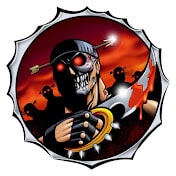
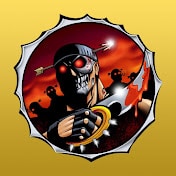







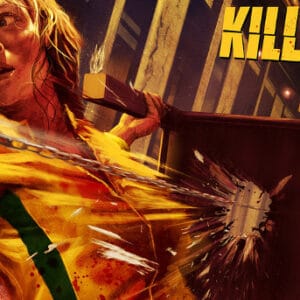
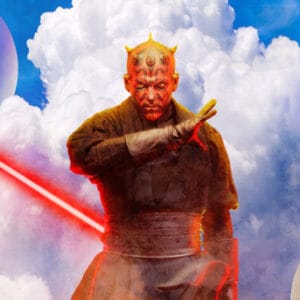



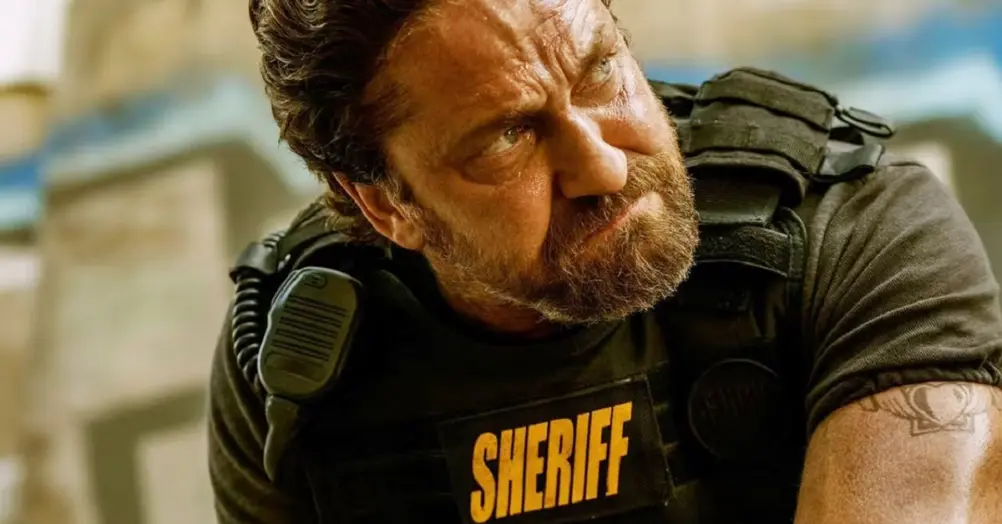







Follow the JOBLO MOVIE NETWORK
Follow us on YOUTUBE
Follow ARROW IN THE HEAD
Follow AITH on YOUTUBE